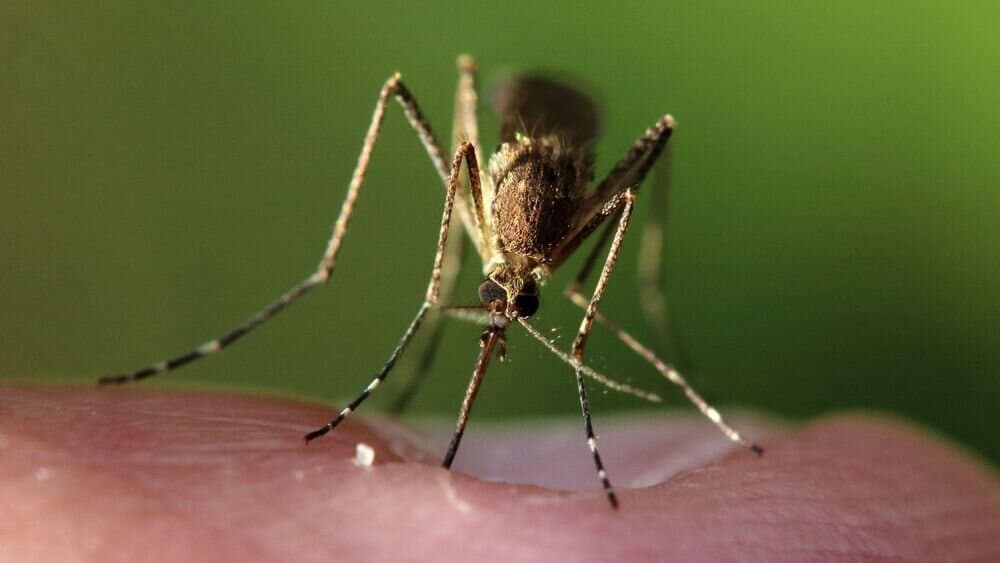Summer evenings are best spent outdoors, basking in the warm weather and enjoying the company of friends and family. However, these delightful moments are often accompanied by uninvited guests: mosquitoes. In our quest to keep these pesky insects at bay, we often turn to various methods of control. One such popular method is the use of bug zappers. But do they really work on mosquitoes? Let’s explore this question in more detail, along with other mosquito control methods that might be more effective.
Bug zappers can kill mosquitoes but are less effective as they rely on UV light, while mosquitoes are more attracted to scents, CO2, and body heat. This makes zappers a suboptimal choice for mosquito control over methods like repellents.
In a nutshell, bug zappers can indeed zap mosquitoes. However, their overall effectiveness in controlling these insects is quite limited. Studies have shown that bug zappers tend to catch more harmless insects than mosquitoes, which does little to protect you from their bites.
What are Mosquitoes Attracted To?
Understanding Mosquito Attraction: Developing Better Strategies for Mosquito Control
Mosquitoes are notorious for their ability to locate and bite humans and animals, and knowing what attracts them can help us devise better strategies to keep them at bay. These insects are drawn to several factors, which we will discuss in more detail below.
- Carbon dioxide (CO2): Mosquitoes can detect the CO2 emitted by humans and animals when they exhale. They use specialized receptors to sense CO2 from a distance, allowing them to find their targets even in complete darkness. By targeting CO2 emissions, we can potentially disrupt their ability to locate us.
- Heat: Mosquitoes are also attracted to the heat emitted by our bodies. Infrared sensors in their antennae allow them to detect the warmth generated by humans and animals. By reducing our heat signature or creating alternative heat sources, we can potentially mislead and confuse mosquitoes.
- Chemicals in sweat and on the skin: Lactic acid, ammonia, and other chemicals present in human sweat are attractive to mosquitoes. Furthermore, certain bacteria on our skin produce compounds that can also lure these insects. Using products that mask or neutralize these odors may help reduce mosquito attraction.
- Standing water: Mosquitoes lay their eggs in standing water, making it a key factor in their life cycle. Eliminating sources of standing water around homes and neighborhoods can significantly reduce mosquito populations and their ability to reproduce. Regularly emptying containers, maintaining swimming pools, and draining puddles can help keep mosquitoes at bay.
By understanding these attraction factors, we can develop more targeted and effective strategies for mosquito control. Methods such as CO2 traps, heat decoys, odor-masking products, and vigilant water management can all contribute to a safer and more enjoyable outdoor environment free from the nuisance of mosquito bites.
Learn to make your own mosquito trap here
Do Spray Repellents Work on Mosquitoes Better?
Compared to bug zappers, spray repellents offer a more effective and targeted approach in protecting against mosquito bites. These products contain active ingredients that have been scientifically proven to repel mosquitoes. The most common and widely used chemicals in spray repellents include DEET, picaridin, and oil of lemon eucalyptus. Let’s delve deeper into the advantages of using spray repellents and how they work.
DEET: Developed by the United States Army in the 1940s, DEET (N,N-diethyl-meta-toluamide) is one of the most effective and widely used mosquito repellents. It provides long-lasting protection and works by confusing mosquitoes’ sense of smell, making it harder for them to locate humans. DEET is available in various concentrations and can be applied to both skin and clothing for optimal protection.
Picaridin: Introduced in the early 2000s, picaridin (also known as icaridin) is another effective mosquito repellent. It is odorless, less greasy, and less likely to cause skin irritation compared to DEET.

Picaridin works by blocking mosquitoes’ olfactory receptors, preventing them from detecting humans. It can also be applied to skin and clothing and is available in different concentrations. One of the main ingredient of Avon’s Skin So Soft Insect Repellent
Oil of Lemon Eucalyptus: Derived from the leaves of the lemon eucalyptus tree, oil of lemon eucalyptus (OLE) is a natural alternative to synthetic repellents. The active ingredient, para-menthane-3,8-diol (PMD), repels mosquitoes by masking the scents that attract them. OLE is typically less long-lasting compared to DEET or picaridin but can be a suitable option for those seeking a natural repellent.
Check out all the natural ways to repel mosquitoes in the back yard with this article: All The Natural Methods To Repel Pesky Mosquitoes
When applied to skin or clothing, spray repellents create a protective barrier that keeps mosquitoes away, significantly reducing the chances of being bitten. By disrupting the mosquitoes’ ability to detect humans, these repellents provide a more targeted and effective solution compared to bug zappers.
With proper application and regular reapplication as needed, spray repellents can help ensure a safer and more enjoyable outdoor experience, free from the annoyance and potential health risks associated with mosquito bites.
Is There a Certain Light Color That Attracts Mosquitoes?
It appears that there is some conflicting information regarding the attraction of mosquitoes to various colors in the light spectrum. While some studies indicate that mosquitoes are attracted to blue and ultraviolet light, other research has found that they are more attracted to certain wavelengths of green light.
A study published in the Journal of Medical Entomology found that mosquitoes are most attracted to light with a wavelength of around 520 nm, which corresponds to green light. The researchers tested different LEDs emitting light with wavelengths between 360 nm (UV) and 660 nm (red) and found that the highest attraction rates were observed at 520 nm.
It’s important to note that the attraction of mosquitoes to light can vary depending on the specific mosquito species and environmental factors. Additionally, while light color may play a role in attracting mosquitoes, it is not their primary attractant; factors such as CO2, body heat, and scents play more significant roles.
To explore this topic further, you can refer to the following study:
Barghini, A., & de Medeiros, B. A. S. (2010). LEDs: Influences on the attractiveness of the light of different wavelengths to the nocturnal mosquitoes of the genus Aedes Meigen, 1818 (Diptera: Culicidae) from a Brazilian population. Journal of Medical Entomology, 47(6), 992-996.
Keep in mind that even if green light attracts mosquitoes, it is still only one factor to consider when attempting to control mosquito populations. A multi-pronged approach, including repellents and environmental management, is typically the most effective strategy for reducing mosquito presence and preventing bites.
What I Found Works Best for My Backyard
After trying various mosquito control methods, I found that a combination of repellent granules and Avon mosquito repellent works best for my backyard. I sprinkle Mosquito Beater granules in wet areas where mosquitoes are likely to breed, which helps to reduce their numbers. The granules are biodegradable and safe for pets, which is a plus.
In addition to the granules, we also use Avon’s Skin-So-Soft Bug Guard Plus IR3535 Expedition, which provides long-lasting protection against mosquitoes. This product is not only effective but also gentle on the skin, making it suitable for the whole family. The grand kids ask for it when they are out in the evening.
We just are adding in the natural Lemon Grass and Citronella plants this year, so there is no data on these guys yet. Learn more about natural methods with this article: All The Natural Methods To Repel Pesky Mosquitoes
Conclusion:
While bug zappers can kill mosquitoes, their overall effectiveness in controlling these insects is limited. Instead, consider using a combination of mosquito repellent methods, such as spray repellents, warm-colored lighting, and repellent granules.
This multi-pronged approach is more likely to keep mosquitoes at bay and ensure that you can enjoy your outdoor activities without being plagued by these pesky insects.


